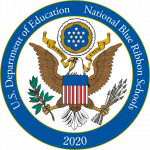By Gabe, Kitah Chet
This summer, I watched America protest the murders of George Floyd, Breonna Taylor, and countless other victims who died because of racially motivated police brutality. I saw the images and videos of these murders and the harassment black people have to go through every day because of their skin color. I watched reporters and protesters alike being showered with rubber bullets and tear gas by police and the National Guard for standing up for what they believe in, and it was then I decided to commit to learning more about race and racism in this country. I read several books, including one I would really recommend for people who want to learn more about race in America, Stamped From The Beginning by Ibram X. Kendi. It was a very enlightening experience to hear about things that I usually didn’t hear about inside the “bubble” of privilege I and many of my fellow Yavneh students have. This experience taught me more than just the history of race in this country; it taught me how important it is to hear firsthand accounts of racism and injustice, as well as just how deeply rooted racism is in this country. The only way we can minimize and de-institutionalize racism and bigotry is by having a diverse coalition of anti-racists, and the only way to make a diverse coalition of anti-racists is by educating people.
Yavneh also realized the need for education on race, focusing this year’s Middle School Social Justice class on race and identity. This is a very impactful class; I have personally seen many of my classmates grow and change for the better after learning about some of the injustices that have been and still are happening to minorities in this country. We’ve learned about historical events, daily injustices and aggressions, privilege, and how we can reflect on our beliefs and behavior and change them for the better. As a direct result of this class, students have begun to take more of an interest in politics and what’s happening outside of the “bubble” I previously mentioned. We’ve had political debates, educated ourselves on other forms of bigotry, and even taken the time to spread the knowledge we’ve learned to others. It’s truly been wonderful to see my classmates and other middle school students learn and grow as a result of this class as we all learn together.
My fellow 8th grade classmates in particular have felt a strong connection to this subject. One of the ideas that has guided us throughout our studies in middle school is the power of memory and history. I can tell that many of my classmates, myself included, have seen meaning in some of the popular slogans of the Black Lives Matter movement, such as “say their names,” because our entire experience for the last three years has been based off of a concept like that. Examples of this can be found in various courses throughout the years; last year, when we studied the Holocaust, our class was fixated on remembering the human element of tragedy and injustice. I saw classmates think of the lives dead Jewish children killed in concentration camps could have led and pledge to always remember the images and stories of victims that we had seen and heard over the course of our study. Another example is how our class is reading Warriors Don’t Cry that tells the story of the Little Rock 9, who were some of the first students to attend an integrated school in the South in the 50s. Throughout our study of the text, we have looked at the cruelty of the segregationists to the black teenage students attempting to integrate the school. I have seen many classmates connect to the stories and first-person accounts of people involved and recognize how terrible the feeling of being told you are “less than” is. This study has opened the eyes of people who viewed racism as a statistic rather than the institutionalized and personal forms that deeply affect the psyche of minorities in this country. This has carried over to other studies of race and bigotry in America, in which my class has made sure to always remember the experiences of oppressed people in this country while moving throughout their lives.
Yavneh has provided an important and needed class this year in Social Justice to contribute to the education of people nationwide on racism and how we can defeat it, and it’s already paying major dividends, especially with the outgoing class heading out of the Yavneh bubble. As a student, I would implore parents to ask your children about what they’re learning and really listen to what they have to say; even if they don’t enjoy learning about this subject, continue to make sure they do not become blinded by the privilege they carry, both in Yavneh and the world at large. Hear what they have learned; through them, you’ll hear what oppressed people in this country have to say. Make this a priority, do your own research and reading, and learn along with your child. Remind yourself and your child that no single movement, election cycle, or effort will ever truly erase racism; in fact, a lot of its effects are irreversible at this point in time. However, we should never give up hope for a fair and equal society. Whenever it seems too depressing or too much effort for something that doesn’t hurt you, remember: the path towards being an anti-racist society is a long one, and it starts with the people who have privilege.

